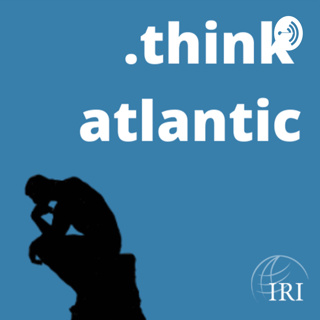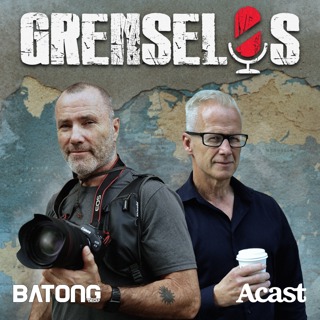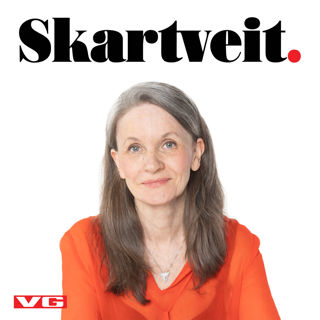
The Future of Conservatism, with Stephen Harper
In this episode of .think atlantic, IRI’s Thibault Muzergues is joined by former Prime Minister of Canada, Stephen Harper, to discuss the future of conservatism in political and socioeconomic institutions. Stephen Harper served as the prime minister of Canada from 2006 to 2015 as the country’s first and only prime minister from the Conservative Party of Canada. His book, “Right Here, Right Now: Politics and Leadership in the Age of Disruption,” published in 2018, directs the episode’s discussion on political disruption and how conservatism can be used as a solution for uncertainty and risk-mitigation in business and government. Stephen shares his experience as the head of Canada’s government, including during the 2008 Global Financial Crisis, and his thoughts on populism and conservatism to analyze how western democracies are evolving in the face of political division and disruption. What needs to be changed in conservative politics? How should modern conservatism define trade and market policies? How should conservatism be evolved to help the broadening working and middle-class population? How does conservatism compare to populism and what is populist conservatism? How and where can we draw the line between positive, patriotism and ethnic nationalism? Thibault and his guest discuss these questions – and much more. Find Stephen on Twitter: @stephenharper Find Thibault on Twitter: @tmuzergues Visit IRI’s website at www.iri.org Further reading: Right Here, Right Now: Politics and Leadership in the Age of Disruption (https://www.penguinrandomhouse.com/books/565219/right-here-right-now-by-stephen-j-harper/)
14 Mai 202138min

The future of the West, with Michael Kimmage
In this episode of .think atlantic, IRI's Thibault Muzergues is joined by Michael C. Kimmage to explore “the West” as a concept in International Relations, and more particularly in US foreign policy. Michael is a professor of history at the Catholic University of America. From 2014 to 2017, he served on the Secretary's Policy Planning Staff at the U.S. Department of State, where he held the Russia/Ukraine portfolio. Michael is also an author, “The Abandonment of the West: The History of an Idea in American Foreign Policy” is his third book, it was published in April 2020 and it is the center of the discussion. How can we define the West, and where does the concept come from, at least from an American perspective? The idea of the West now seems to be challenged from the outside, from the inside, and even from some actors who recently joined in, how to analyze this? Does it mean that the East that was defeated in the 1990s is striking back? Does it mean that the West has overreached and needs to rethink its model? Is there still time to revive the concept of a larger West that would not only include the Anglosphere but also Europe and may be beyond? How do we do that? IRI’s Thibault Muzergues and his guest discuss all these questions - and much more. Find Michael on Twitter at @mkimmage Find Thibault on Twitter at @tmuzergues Visit IRI’s website at www.iri.org Further reading: The Abandonment of the West: The History of an Idea in American Foreign Policy by Michael Kimmage (https://www.basicbooks.com/titles/michael-kimmage/the-abandonment-of-the-west/9781541646049/)
30 Apr 202137min

Europe's Eastern Partnership with Andrius Kubilius and Ivanna Klympush-Tsintsadze
On this episode of .think Atlantic, IRI's Thibault Muzergues is joined by two special guests, former Prime Minister of Lithuania, Andrius Kubilius, and Member of the Ukrainian Parliament, Ivanna Klympush-Tsintsadze, to talk about Europe’s Eastern Partnership initiative. Last year was the 10th anniversary of the Eastern Partnership and there was supposed to be a large celebration where the relationship was to be renewed with new policies for the next 10 years. But when COVID happened, the summit was postponed to 2021, and now it has been postponed again. This new postponement begs the question of the continued relevance of the initiative in its current shape. If that is the case, what is the way forward? Does it make sense to have this one-size-fits-all format for the EU’s neighborhood? Should the goals for the Eastern Partnership with geopolitical insight be rethought considering the instability in the Southern Caucasus, and considering the immediate threat that Russia poses to some countries in the region? And what should be the West’s approach and strategy towards Belarus? Thibault Muzergues and his guests debate all these questions - and many more. Ivanna Klympush-Tsintsadze is currently a Member of the Ukrainian Parliament, the Verkhovna Rada, and head of the Parliamentary Committee on EU integration. Previously, she was Deputy Prime Minister for European and Euro-Atlantic integration from 2016 to 2019. She is also the co-author of a collective book called “Black Sea Region: Cooperation and Security Building” which she published with Routledge in 2016. Andrius Kubilius is currently a Member of the European Parliament and co-president of the Euronest parliamentary assembly. He served twice as a Prime Minister of Lithuania, twice in times of financial and economic crisis for this Baltic nation, in 1999-2000 and from 2008 to 2012. He was also the leader of the opposition from 2012 to 2016. Find Ivanna Klympush-Tsintsadze on Twitter at @IKlympush Find Andrius Kubilius on Twitter at @AndriusKubilius Find Thibault Muzergues on Twitter at @tmuzergues
16 Apr 202147min

Elections in Bulgaria, with Daniel Mitov
On this episode of .think Atlantic, IRI's Thibault Muzergues is joined by former Minister of Foreign Affairs of Bulgaria, Daniel Mitov, to talk about Bulgaria as the country is about to head to the polls on Sunday, April 4th for legislative elections. Last summer, Bulgaria was rocked by major protests about the country’s rule of law issues, which include corruption, the unchecked powers of the Prosecutor General, and judicial independence. Has the situation evolved since then? If the winner of the elections is GERB, where does GERB go to form a majority needed to form a government? What issues Bulgaria faces and which should be prioritized for the incoming government? What should be done to move forward on the integration of Western Balkans in the Euro-Atlantic structures? How will Bulgaria’s foreign policy evolve in what is a key region for Europe’s geopolitical stability? Thibault Muzergues and his guest debate all these questions - and many more. Daniel Mitov served as Minister of Foreign Affairs of Bulgaria from 2014 to 2017. He has been involved since the early 2000s in Bulgaria’s democratization process. He worked as executive director of the Democracy Foundation in Bulgaria for four years and was also active in Bulgarian and European politics for many years. Daniel is now a candidate for the legislative elections. Find Daniel on Twitter at @DanielMitov Find Thibault on Twitter at @tmuzergues Visit IRI’s website at www.iri.org Visit IRI's Beacon Project at iribeaconproject.org
2 Apr 202145min

Covid-19: Lessons learnt for the Transatlantic Space
On this episode of .think Atlantic, IRI's Thibault Muzergues is joined by Katalin Cseh, Mohand Sidi-Said, and IRI's Zuzana Palušáková. The discussion centers around a new report by the International Republican Institute (IRI), in partnership with the Alliance for Liberals and Democrats in Europe (ALDE) and the European Liberal Forum (ELF), which measures European sentiment on COVID-19 and its fallout across the region. What are the main takeaways from the data? How are Europe and North America going to exit the health crisis in the coming months? How can we improve our health systems to make them more resilient? How do we ensure that the governments will give back all the public freedoms they took away during the pandemic? Thibault Muzergues and his guests debate all these questions - and many more. Katalin Cseh is a Hungarian Member of the European Parliament, and vice-chair of the Renew Europe parliamentary group - she hails from the Hungarian liberal party Momentum. She is also a member of the Committee on Industry, Research, and Energy and is part of the delegation for relations with the United States. Mohand Sidi-Said is a Franco-Algerian philanthropist, former Vice-President of Pfizer, and of the Pharmaceutical Research and Manufacturers of America, which represents the Pharmaceutical industry in the United States. Find Katalin on Twitter at @katka_cseh Find Mohand on Twitter at @MohandSidi. Find Thibault on Twitter at @tmuzergues Visit IRI’s website at www.iri.org Further reading: European public opinion perception about Covid-19 report (https://www.iri.org/sites/default/files/iri_european_public_opinion_perception_about_covid-19_final_version_.pdf)
26 Mar 202152min

Elections in the Netherlands, with Liesje Schreinemacher
On this episode of .think Atlantic, IRI’s Thibault Muzergues and a Dutch politician and a Member of European Parliament, Liesje Schreinemacher talk about the Netherlands as the Dutch go to the polls for important legislative elections these days. The general election is largely seen as a referendum on the government’s handling of the coronavirus pandemic. Dutch Prime Minister Mark Rutte is aiming to secure a fourth term with an election victory that would put him on course to be the Netherlands’ longest-serving government chief – but what next? What explains the long-term dominance of the center-right parties in Dutch politics? Is the “frugal” branding of the Netherlands correct? How should we understand the Netherlands’ philosophy towards the EU? How does the Netherlands view the debate about strategic autonomy? Liesje Schreinemacher is a Dutch politician and lawyer who is serving as a Member of the European Parliament for the People's Party for Freedom and Democracy political party. She was elected to the European Parliament in the 2019 European Parliament election and is a part of the Renew Europe parliamentary group. She is a member of the Committee on International Trade and the Committee on Legal Affairs and a part of the parliamentary delegation for relations with the United States and a member of the European Parliament Intergroup on LGBT Rights. Find Liesje on Twitter at @LSchreinemacher Find Thibault on Twitter at @tmuzergues Visit IRI’s website at www.iri.org
17 Mar 202128min

Baltic Sea Security, with Kristi Raik
Why is the Baltic sea region such a hotspot, despite having ninety percent of its coastline part of the EU? How to approach the dilemma of European strategic autonomy and how does it resonate for Baltic security? What to answer to those who claim that having NATO troops stationed in the Baltic states is inviting the Russians to escalate their engagement in the region? What to do with the growing presence of China and what does it mean for the transatlantic relationship? On this episode of .think atlantic, IRI’s Thibault Muzergues and his guest Kristi Raik discuss all these questions - and more. Kristi Raik is the Director of the Estonian Foreign Policy Institute at ICDS and Adjunct Professor at the University of Turku. She has previously served inter alia as a Senior Research Fellow and Acting Programme Director at the Finnish Institute of International Affairs in Helsinki; an official at the General Secretariat of the Council of the European Union in Brussels; and a Visiting Fellow at the Centre for European Policy Studies in Brussels and the International Centre for Policy Studies in Kyiv. She is also an author of numerous articles and publications on the European foreign and security policy. Find Kristi on Twitter at @KristiRaik Find Thibault on Twitter at @tmuzergues Visit ICDS’s website at https://icds.ee/en/ Visit IRI’s website at www.iri.org
5 Mar 202145min

Democracy in the Age of Social Media, with Cyrus Krohn
On this episode of .think Atlantic, IRI’s Thibault Muzergues and tech expert Cyrus Krohn discuss how much the internet has changed in the past 13 years since the two first met during the 2008 election cycle. Touching on themes of surveillance capitalism, information warfare and a potential dystopian outcome, Krohn delves into the solutions he presented in his recently published book Bombarded: How to Fight Back Against the Online Assault on Democracy. Krohn, who’s background includes tech giants Microsoft and Yahoo, has a great deal to say about information warfare, psychological operations, and data protection. Will the U.S. – and to a greater extent, global democracy – be able to curtail the harmful effects of information warfare before it’s too late? How exactly can we challenge surveillance capitalism, and what makes the current online trend described in Krohn’s book more dangerous than what has happened before? Find out the answers to these questions and more on this intriguing episode of the podcast. Cyrus Krohn is the author of the 2020 book Bombarded: How to Fight Back Against the Online Assault on Democracy. Krohn has been in the digital realm practically since the beginning, when he helped bring the internet to the White House as an intern in the early 1990s. He then went on to consolidate his reputation as a frontline digital innovator with companies like Yahoo, Microsoft and Slate.com. He has moved back and forth from the West Coast to Washington D.C., where he was most recently the Social Media manager for the Republican National Committee. Find Cyrus on Twitter at @CyrusK Find Thibault on Twitter at @tmuzergues Visit IRI’s website at www.iri.org Further reading: Bombarded: How to Fight Back Against the Online Assault on Democracy by Cyrus Krohn (https://cyruskrohn.com/)
19 Feb 202138min





















